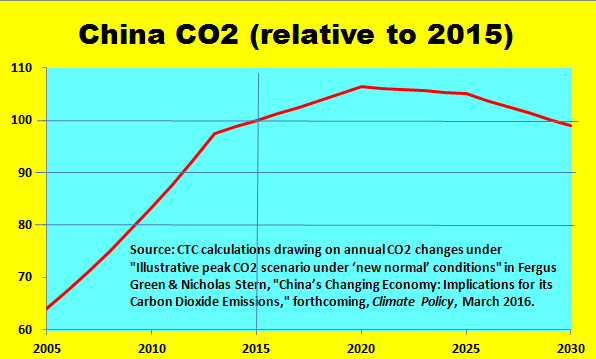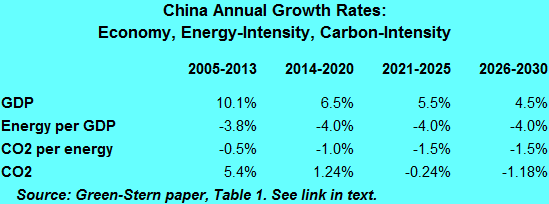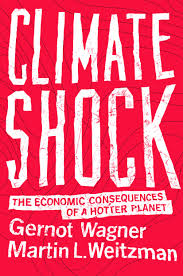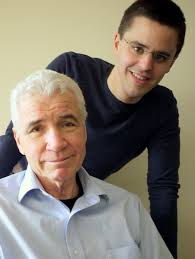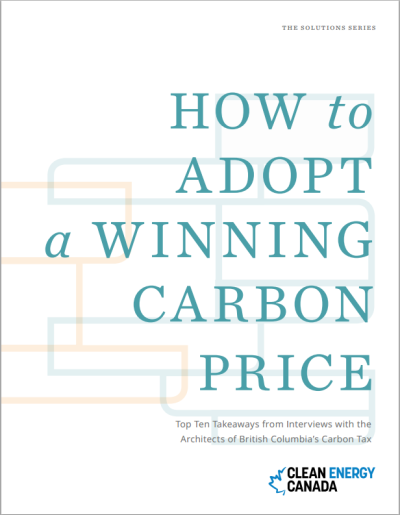Ed. note: With President Obama visiting Saudi Arabia amid low oil prices and a renewed focus on the kingdom’s role in the 9/11 attacks, we reached back to early 2002 for this previously unpublished but eerily timely essay by journalist Daniel Lazare. His call then for the U.S. to tax oil is, of course, part of his and our message today for taxing carbon: The goal is a society in which communities are stronger and more cohesive, the environment is cleaner, and democracy is enhanced as “we the people” create the kind of society we want rather than the one the carbon interests want us to have.
Since Sept. 11, the press has been turning the spotlight on Saudi Arabia, and it’s safe to say that Americans don’t much like what they see. The problem is not just the fifteen out of nineteen suicide bombers who turned out to be Saudi citizens or the fact that the Saudi government has been less than fully cooperative with the follow-up investigation. Rather, it’s the nature of Saudi society itself.
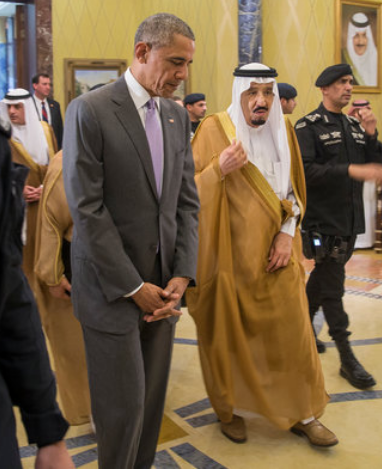
President Obama with King Salman at Erga Palace in Riyadh, Saudi Arabia, on Wednesday, April 20. Photo by Stephen Crowley / NY Times.
Kind of like a Vatican with 25 percent of the world’s proven oil reserves, it has used its petro-earnings to export a militantly intolerant brand of Islam that has spread an arc of violence from Indonesia and Central Asia to lower Manhattan. The world’s most rigid theocracy now that the Taliban are gone, it is a medieval outpost in which all religions other than Islam are banned and homosexuality and “sorcery” are grounds for capital punishment. Women are forbidden to drive, dissent is prohibited, voting does not exist, and up to two million housekeepers and nannies from places like Malaysia and Bangladesh are held in virtual slavery.[1]
Amazingly given its vast oil wealth, Saudi Arabia is also skirting the edges of bankruptcy. Corruption is one obvious factor, but a deeper reason has to do with what the James Surowiecki referred to recently as “the resource curse” in his column in The New Yorker.[2]
In the short run, oil makes a country rich. But, in the long run, it makes it poor by encouraging its inhabitants to think of wealth not as something they create by developing new machines and services, but as a pre-existing quality they merely extract from underground. Instead of working for a living, it teaches them to sit back and count the proceeds from foreign oil concessions.
For the historically minded, the analogy that comes immediately to mind is sixteenth-century Spain, which used it immense gold and silver earnings from Mexico and Peru to finance a series of imperial misadventures (including the “Invincible Armada” of 1588) that left it economically prostrate. The current Saudi ruler, Crown Prince Abdullah, has vowed to close a $12-billion budget shortfall this year by privatizing public utilities and cutting back on social spending. But since lavish social spending – everything from multi-billion-dollar construction grants to the $40,000 a year that even the lowliest prince receives for each member of his family[3] – is the glue that holds Saudi Arabia together, it is hard to imagine how Abdullah can economize in this fashion without cutting himself off at the knees.
It’s a mess, all right, one that is likely to render the Persian Gulf region even more unstable than it already is. But what the press has so far failed to notice is the curious symmetry underlying U.S.-Saudi relations.
If Saudi Arabia is the world’s biggest oil exporter, it is because the United States is willing to serve as the world’s biggest oil importer. If the Saudis have been notably unsuccessful in diversifying their economy so as to reduce their reliance on oil exports, the U.S., with its growing number of McMansions and SUV’s, has made so little headway in reducing its own oil dependency that it has all but given up. If America all but made the current Saudi regime by agreeing since 1945 to insure its security against all outside threats, then the Saudis in a certain sense have made the current American economy by insuring an uninterrupted flow of low-priced energy that has allowed businessmen to cover the landscape with suburban homes, shopping malls, fast-food drive-ins, and other forms of hyper-sprawl.
It’s a partnership that both governments regard as profitable, but which is anything but. The reason is the aforementioned resource curse, which turns out to be a two-way street affecting Americans no less than the Saudis.
In economic terms, the resource curse can be expressed in terms of a widening gap between the nominal and the real, between the ostensible price of a given commodity and its true cost to larger society. Just as the Saudis regard ultra-cheap, ultra-plentiful crude as a boon, Americans regard their own super-low fuel prices as an unalloyed blessing because it allows them to cruise in big cars on big highways for just pennies a mile.
With highway fuel prices as much as 80 percent below West European levels,[4] Americans count themselves lucky to live in a country where government does not dare interfere with the sacred right of individual mobility. They do so, however, only because, like the Saudis, they systematically ignore the larger social dimension. Because prices at the pump reflect only a small portion of the costs, every gallon they burn leaves them just a little poorer than when they started. The more Americans consume, the more they “dissave,” with ever more baroque consequences.
What are the social costs? Well, air pollution is the most classic example of an expense that fossil-fuel users have succeeded in shunting onto society as a whole. The expense of caring for uninsured motor-vehicle accident victims, which a federal study recently estimated at $13.8 billion a year,[5] is another cost that highway-fuel users should take responsibility for but, unfortunately, do not.
Global warming, due largely to the use of carbon-based fuels, is a third such item no matter how much the Bush administration wishes it would go away. Although Sunbelt conservatives will no doubt disagree, the disembowelment of one aging industrial city after another thanks to rampant highway construction and subsidized automobile use is also a social cost, as is the esthetic blight caused by to suburban sprawl.
This is not to say that all suburban developers must be stopped in their tracks. But it is to say that every time someone puts up an Arby’s or a McDonald’s, it imposes a visual tax on passers-by that, under the present system, redounds exclusively to the benefit of small minority of investors. A social asset is degraded so that a private asset can be artificially enhanced.
The list goes on. Gridlock is what economists call a negative externality because it imposes a real cost on anyone stalled in traffic or whose deliveries or employees are delayed. A major study of the 50 largest U.S. metropolitan districts found that, with only half a dozen exceptions, rush-hour traffic delays had increased by double-digit percentages between 1982 and 1994 – by 14 percent in New York, for example, 20 percent in Boston, 25 percent in Chicago and L.A., 32 in San Francisco-Oakland, and a whopping 55 percent in San Diego.[6]
True, highways are still gloriously empty in portions of the heartland where George W. Bush believes “the strength of this country” lies.[7] But Americans, by and large, don’t live in those wide-open spaces (which is why they’re wide-open to begin with). They live in crowded metropolitan corridors where population densities are fully the equal of those in Western Europe and rush-hour traffic increasingly moves at a snail’s pace.
Finally, there are the military costs, the fastest growing externality of all. In a paper published last August by the Cato Institute (which, like a stopped clock, is also occasionally correct), an economist named Donald Losman estimated that the U.S. spends $30 to $60 billion a year in and around the Persian Gulf to protect $10 billion a year in oil.[8] If such expenditures were incorporated into the price of fuel, there’s no doubt that Americans would arrange their priorities differently.
Moreover, Losman’s figures considerably understate the problem. Military expenditures in the region have soared in the wake of Sept. 11 and are likely to soar higher still if the war spreads to Iraq. Rather than reducing its exposure, U.S. policies thus have the effect of thrusting it more deeply into a volatile corner of the world. Rather than making it less vulnerable, they make it more.
While it is impossible to say that the Twin Towers horror would not have occurred if U.S. energy policies had been different, there’s no doubt that current policies makes such events more likely to occur. Three thousand crushed and incinerated bodies are a reminder that no matter how much Americans try to ignore the reality gap, it will not go away.
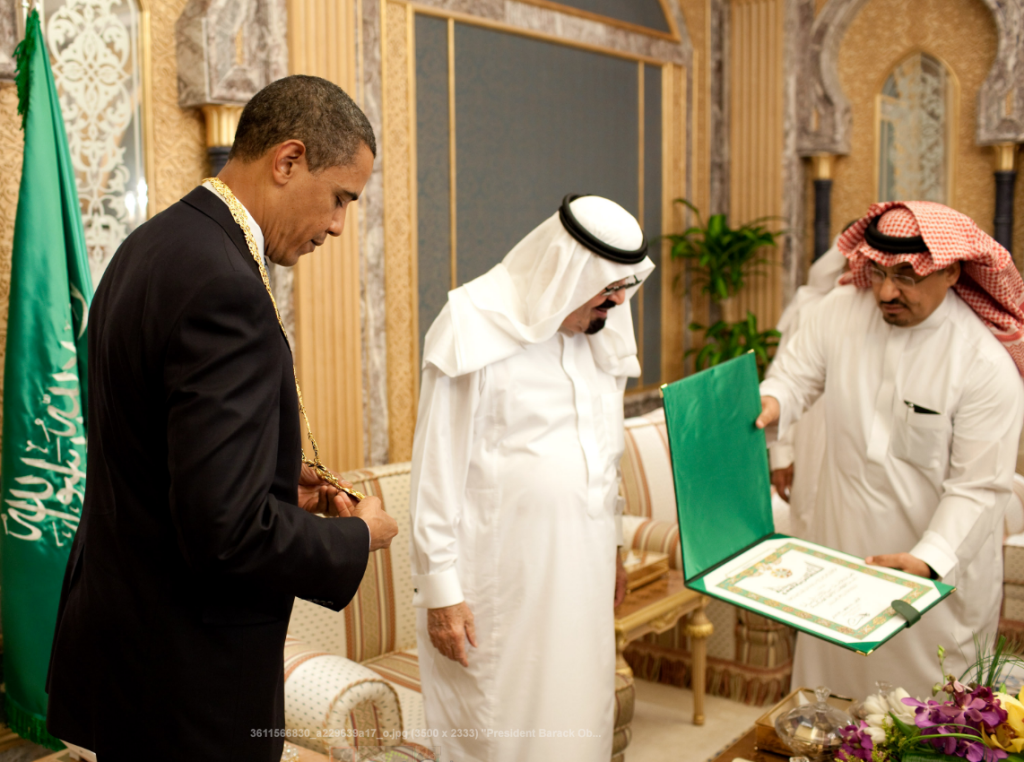
Obama receiving Saudi Arabia’s Order of Merit from the late Saudi King Abdullah Aziz at the start of their June 2009 meeting in Riyadh. White House photo by Pete Souza.
What can be done? For Saudi Arabia, the answer is not much. Theoretically, it could emulate Norway by using its petro-earnings to shore up the welfare state while imposing stiff energy taxes in order to protect itself against the ravages of underpriced oil. But Saudi Arabia is no Norway, to say the least. Rather than an advanced democracy, it is a primitive backwater that has somehow stumbled onto fantastic riches. Rather than a modern welfare system, the only way it knows to distribute the wealth is through the time-honored methods of corruption, baksheesh, and patronage, practices that destroy the social fabric rather than in any way mending it.
Once again, the relevant model may well be early-modern Spain, which, by the seventeenth century, had plunged into such depths of xenophobia, religious obscurantism, and economic despair that it was only in the 1960s that it was able to begin climbing out. If so, there is no way the Saudis will be able to avoid an equally great wringing-out, one that is also likely to prove painful and protracted.
On the other hand, there is a great deal the United States could do if it wanted. Although the punditocracy doesn’t yet realize it, the seller’s market of the 1970s and early ’80s, when OPEC was in its heyday, is long gone, probably for good. With the price of crude down some 75 percent in real terms over the last two decades, the economic advantage has shifted from producers to consumers. Instead of the exporters, it is now the importers, most especially the U.S., that are in a position to set prices nearly at will.
How? Enron-inspired supply-side measures such as opening up the Arctic National Wildlife Refuge to drilling are clearly not the answer. Stepping up domestic production does nothing to restrain energy demand. By relegating conservation to a mere matter of “personal virtue,” in Dick Cheney’s infamous phrase, it insures that fossil-fuel consumption will remain at present levels or higher and that imports will therefore continue to grow.
Unfortunately, tighter CAFÉ regulations will not do the trick either. With their collective genius for zeroing in on the ineffectual, congressional Democrats have hitched their star to what Paul Portney, president of the environmental group Resources For the Future, describes as at most a “second-best solution.”[9] Regulations aimed at boosting fuel efficiency will do nothing to reduce congestion – indeed, by lowering the cost of driving, they might actually add to it by providing motorists with an additional incentive to take to the road. They will do nothing to roll back or slow the spread of sprawl and probably will have little impact on highway fatalities and injuries.
Even when it comes to fuel consumption, moreover, it is questionable how effective a purely regulatory approach can be. When lawmakers began working on CAFÉ regulations in the late 1970s, they felt they had no choice but to create an exemption for light trucks. After all, who wanted responsibility for putting farmers, builders, or other hard-working sorts out of business? But what legislators didn’t know was that automakers would use the exemption to create a product known as the sport utility vehicle that would proliferate so wildly that it would end up undoing much of the good work that CAFÉ had done.
Under the most optimal conditions, there is no doubt that no matter what CAFÉ standard Congress comes up with in the coming years, it will be festooned with all sorts of loopholes for automakers to enlarge. Assuming they are successful, fuel consumption will resume its upward trajectory, oil imports will grow, and the agony will merely be prolonged.
Rather than regulatory, an economic approach would be far more efficient. Simply put, the power of taxation must be brought to bear so as to reduce or eliminate the reality gap between the nominal price of fossil fuels and their social cost.
Like consumption taxes in general, fuel and other highway taxes are inherently regressive, but this can be offset in two ways. One is to use them to reduce payroll taxes for wage earners and the poor. Another is to see to it that at least a portion of the revenue goes into rail and other forms of mass transit, the benefits of which will flow disproportionately to urban centers where the hardest-hit workers are located.
Classical economic theory teaches that economic actors make the best decisions when they have the best information at hand. By closing the reality gap, that is precisely what fossil-fuel taxes are designed to do. By rendering prices more accurate, they increase the likelihood that money and capital will find their most productive outlet. Instead of channeling resources into oil wells and SUV’s, they will encourage Americans to put their funds where they will do most good – in urban redevelopment, in more advanced forms of transportation, in more efficient forms of industry generally.
The goal is not only a sounder economy but a sounder society, one in which communities are stronger and more cohesive, the environment is cleaner and more attractive, and democracy is enhanced as “we the people” learn to make full use of the tools before us to create the kind of society we want rather than the one the oil interests want us to have. While raising prices at the pump, fuel taxes would slash demand and hence send crude prices crashing through the floor. Just as the price hikes of the 1970s brought howls of protest from energy consumers, the reverse policy will likely bring howls of protest from energy producers. But if ever there was a class that deserved to have its ox gored, this is it.
Of course, energy taxes do not have a snowball’s chance in hell under anything like current political circumstances. The last time anything similar was attempted was in 1993 when Bill Clinton tried to persuade Congress of the merits of a BTU tax on carbon-based fuels. The proposal went down faster than you can say “Newt Gingrich.”
Given a Republican-controlled House, a Senate structurally biased in favor of rural interests, and a presidency that is similarly biased due to an electoral college that gives voters in rural states up to three times as much clout as those in urban, any such measure would likely fare no better today. But the fact that passage is unlikely doesn’t make it any less necessary. An empire that finds it easier to send troops to war than to institute common-sense reforms at home is one that is weaker than it thinks.
[1] Robin Allen, “A Time Bomb in the Desert,” Financial Times, June 10, 2000, Front Page – Weekend FT.
[2] “The Real Price of Oil,” Dec. 3, 2001, p. 41.
[3] Said K. Aburish, “Saudi Arabia: Coming Change Bodes Ill,” Los Angeles Times, Dec. 16, 2001, p. M2.
[4] See http://www.iea.org/statist/keyworld/keystats.htm for retail price quotes as of 4Q2000.
[5] National Highway Traffic Safety Administration, “The Economic Cost of Motor Vehicle Crashes, 1994,” Washington, D.C., 1996, p. 2.
[6] Texas Department of Transportation, Urban Roadway Congestion – 1982 to 1994 (Austin, 1997), pp. 12, 19, 23, 32.
[7] Frank Bruni, “Bush, Deep in the Heartland, Hears Discouraging Words,” The New York Times, Aug. 15, 2001, p. A1.
[8] Donald Losman, “Economic Security: A National Security Folly?” available at http://www.catoinstitute.org/pubs/pas/pa409.pdf.
[9] Telephone interview, Friday, Jan. 4, 2002.

